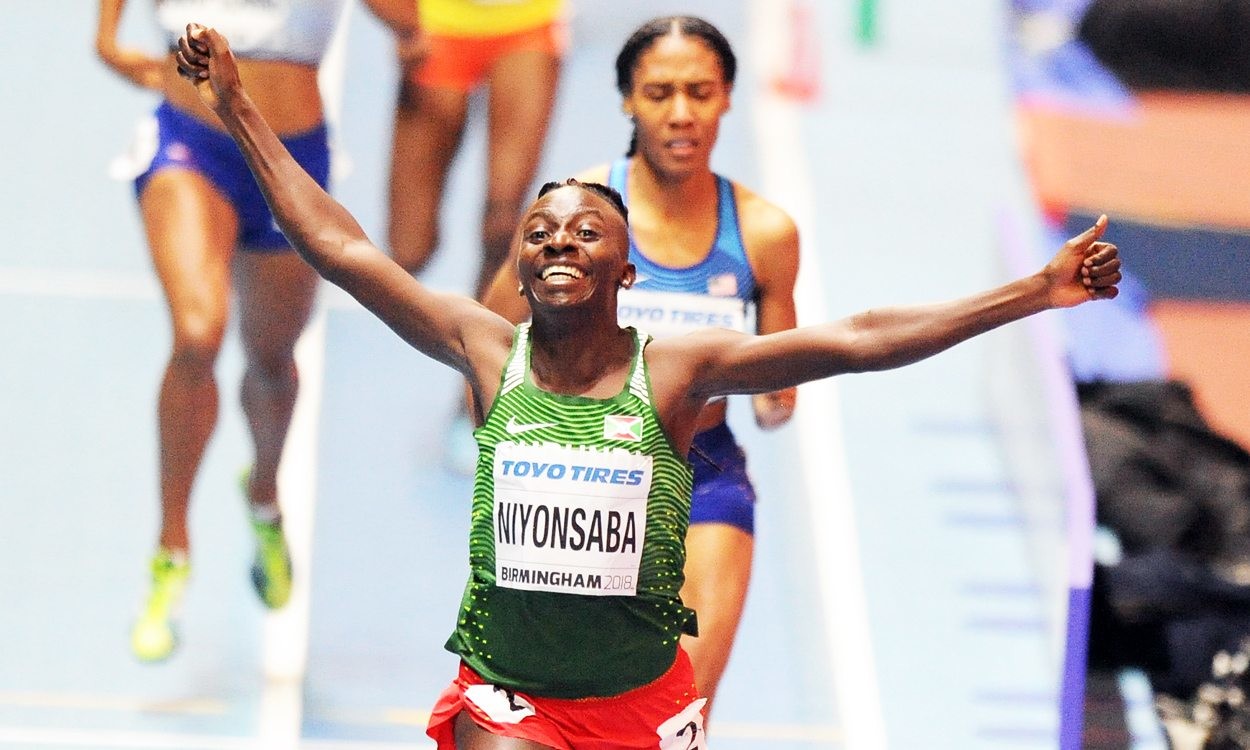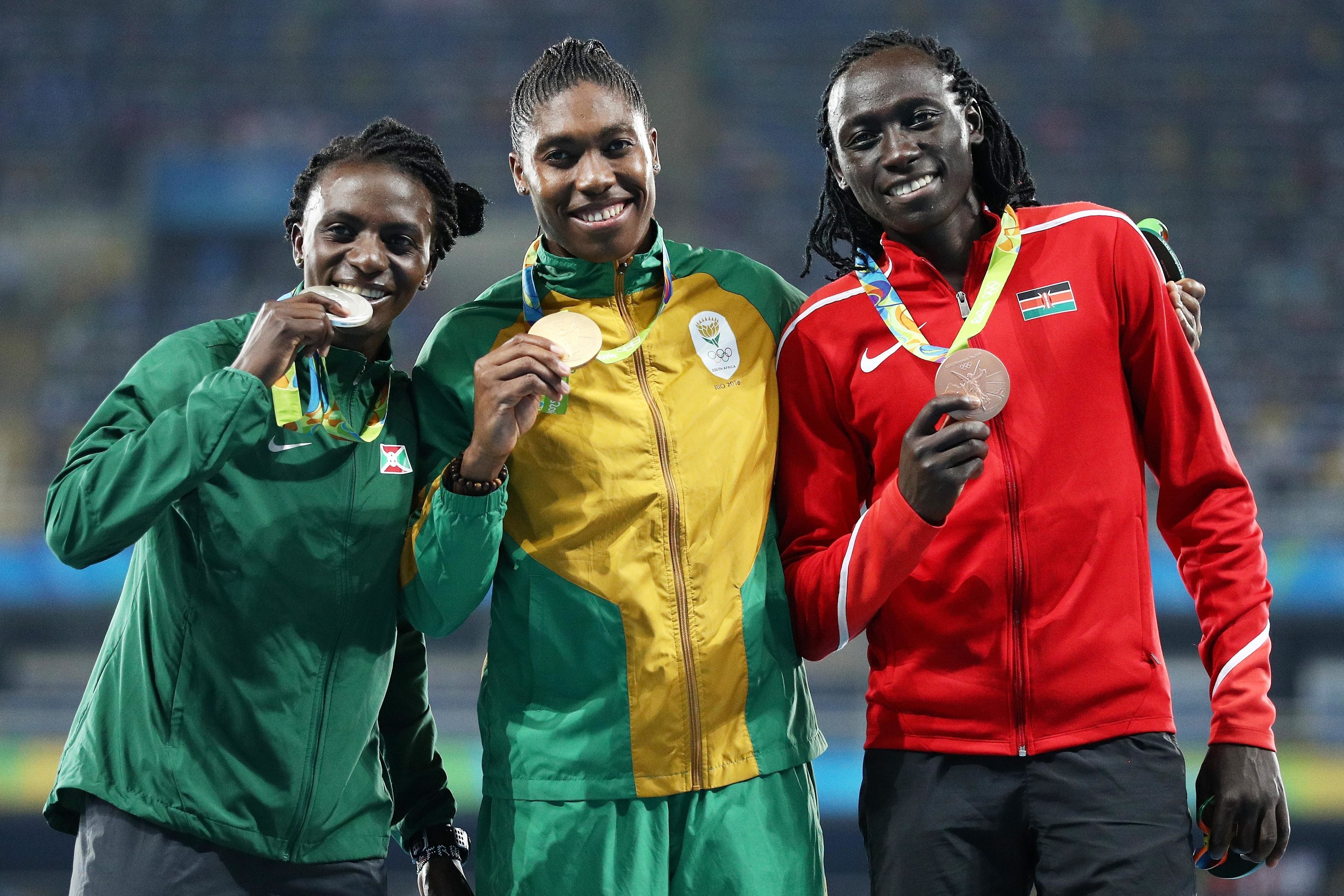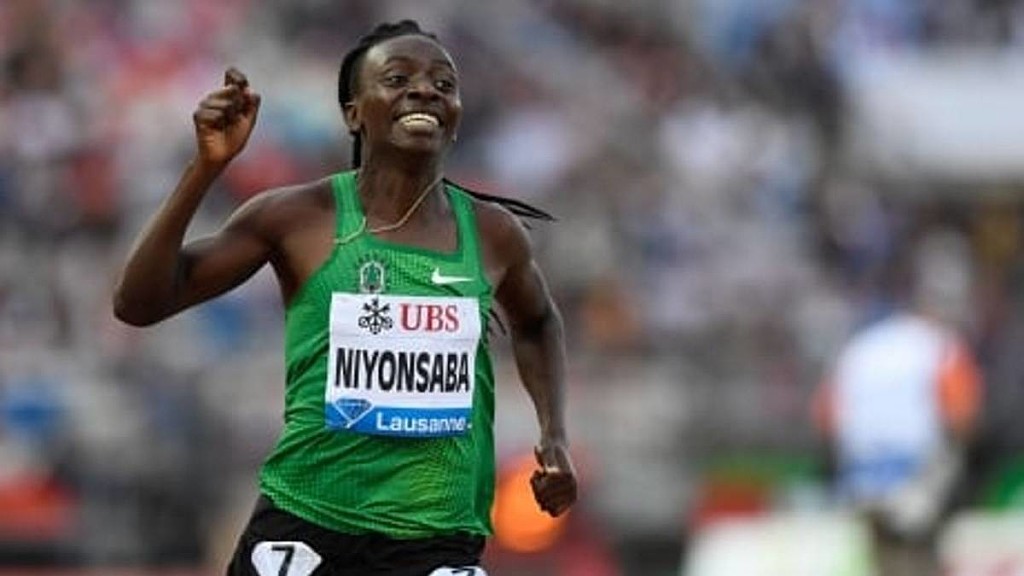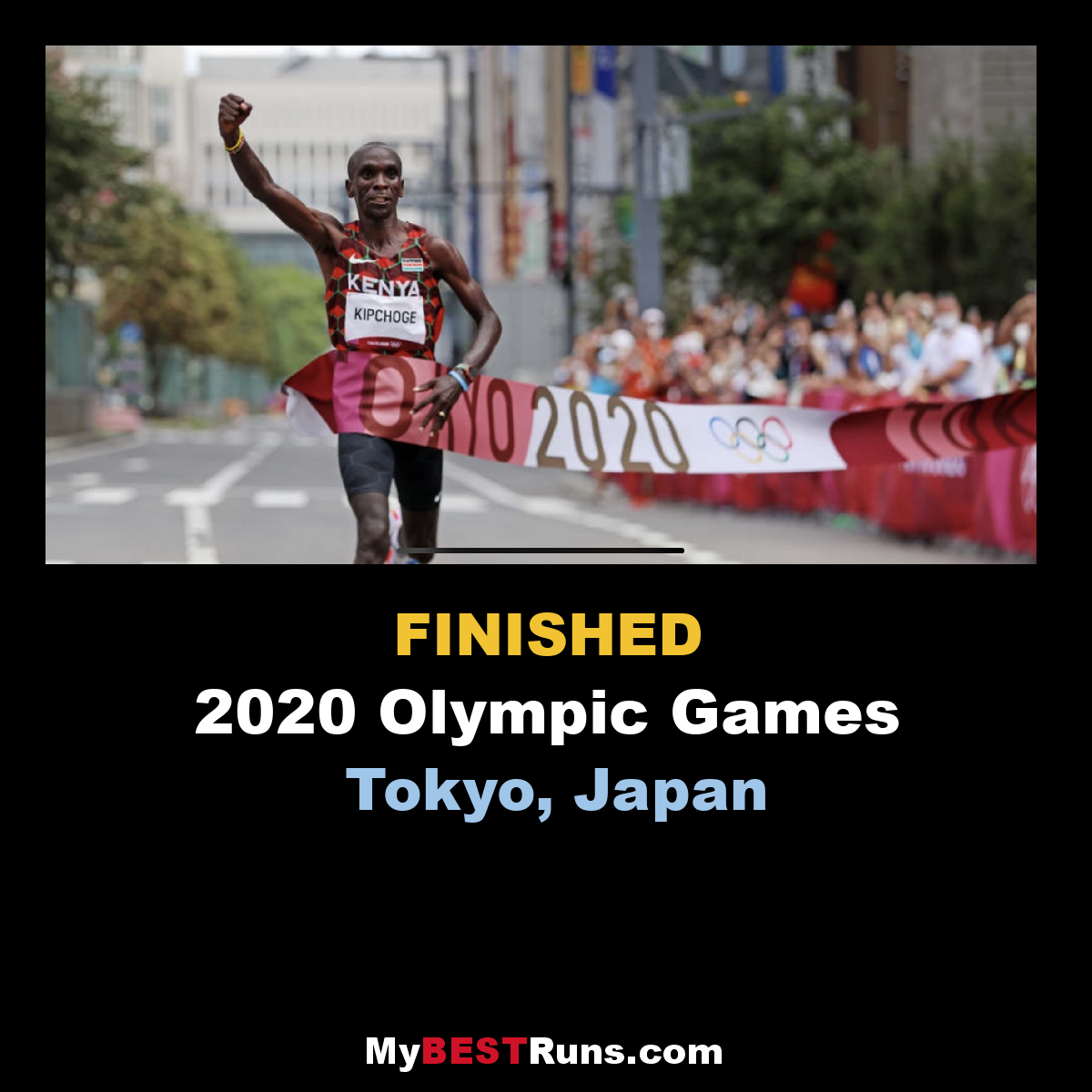Running News Daily
Running News Daily is edited by Bob Anderson. Send your news items to bob@mybestruns.com Advertising opportunities available. Train the Kenyan Way at KATA Kenya and Portugal owned and operated by Bob Anderson. Be sure to catch our movie A Long Run the movie KATA Running Camps and KATA Potato Farms - 31 now open in Kenya! https://kata.ke/
Index to Daily Posts · Sign Up For Updates · Run The World Feed
2016 Olympic 800m silver medalist Francine Niyonsaba bids to race 5,000m at Tokyo Olympics
Francine Niyonsaba, the 2016 Olympic silver medalist in the women’s 800m, announced this week that she will be attempting to qualify for the Tokyo 2021 Olympics in the 5,000m after being barred from running any event between 400m and the mile unless she takes testosterone-suppressing measures.
The 27-year-old from Burundi finished in second place behind Caster Semenya at both the 2016 Olympics and the 2017 world championships, and both athletes (along with 2016 Olympic bronze medallist Margaret Wambui) have been at the centre of an ongoing and heated debate about hyperandrogenism in women’s sport. In April 2018, the IAAF announced that any athlete who has Differences of Sexual Development (DSD) will be ineligible to compete in any event between the 400m and the mile. Having DSD means that the athlete has levels of circulating testosterone (in serum) that are five nanomoles/litre or above and is androgen-sensitive.

According to the regulations, if an athlete with a DSD wishes to compete in any of the restricted events, she must fulfill the following criteria:

(a) she must be reconized at law either as female or as intersex (or equivalent);
(b) she must reduce her blood testosterone level to below five nmol/L for a continuous period of at least six months (e.g., by use of hormonal contraceptives); and
(c) thereafter she must maintain her blood testosterone level below five nmol/L continuously (ie: whether she is in competition or out of competition) for so long as she wishes to remain eligible.
In light of these new restrictions, many DSD athletes, including Semenya and Niyonsaba, have instead chosen to compete in other events. Semenya has previously said she is bidding to make the Tokyo Olympics in the 200m, while Niyonsaba has chosen to jump up in distance. In 2019 she alluded to this decision in an interview with the Olympic Channel. When the interviewer asked her what she would do if she was forced to move up in distance, her response was “I can even run the marathon.”
“Running to get good results is just about training,” she said. “Nothing else. I’m always saying ‘be what you are, whatever you do.’ That’s how you get to success.”
She added that she will keep her vision and her passion because she loves running, and she will not stop. According to her Instagram, Niyonsaba recently ran a 10K cross-country race in 33:45, and while it doesn’t translate directly to the track, she was not far off the Olympic 10,000m qualifying standard of 31:25. Certainly the world of track will be watching to see what she does next, but with her determination, we expect great things.
“In my dream, I want to retire with the gold medal,” she said. “I know… I want to retire with the gold medal.”
by Brittany Hambleton
Login to leave a comment
Tokyo 2020 Olympic Games
Fifty-six years after having organized the Olympic Games, the Japanese capital will be hosting a Summer edition for the second time, originally scheduled from July 24 to August 9, 2020, the games were postponed due to coronavirus outbreak, the postponed Tokyo Olympics will be held from July 23 to August 8 in 2021, according to the International Olympic Committee decision. ...
more...




